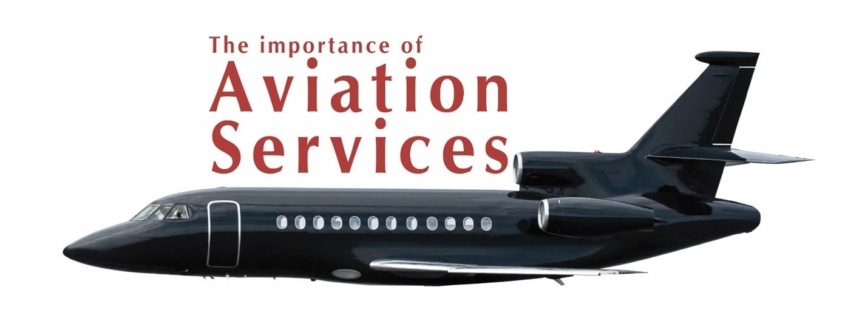Navigating the Skies: The Vital Role of Aviation Services in Our Globalized World
In our fast-paced, interconnected world, the importance of aviation services remains undeniable, and they continue to evolve and adapt to meet the changing needs of our world.
Aviation services contribute significantly to the global economy. According to the International Air Transport Association (IATA), the aviation industry generates over $2.7 trillion in economic activity, supporting millions of jobs worldwide. The industry not only provides employment opportunities directly but also stimulates tourism, trade, and investment in various regions.
Here is a closer look at why aviation services are essential and how they affect different aspects of air travel:
- Safety and Security: Encompass air traffic control, airport security, and maintenance ensuring the safety of passengers and flight crews, managing the flow of air traffic, and guiding planes during takeoff, landing, and en-route. Perform critical checks to prevent security threats.
- Operational Efficiency: Aviation services optimize flight operations, leading to more efficient and punctual air travel, I.e., Ground handling, baggage, refueling, and aircraft servicing, streamlining turnaround times at airports.
- Trade and Cargo: Cargo transportation via air is a crucial component of the global supply chain. It is the fastest way to transport high-value and time-sensitive goods, such as pharmaceuticals, electronics, and fresh produce. Aviation services ensure that these commodities reach their destinations promptly, reducing the risk of spoilage and ensuring the availability of essential products.
- Customer Experience: Passenger services, such as check-in, boarding, and in-flight services, enhance the overall travel experience.
- Tourism and Leisure: The aviation industry has democratized travel, making it accessible to a broader range of people. Affordable airfares have allowed individuals to explore new destinations, promoting tourism and cultural exchange. As a result, many countries depend on tourism for their economic well-being.
- Business and Investment: For international businesses, aviation services are indispensable. They enable executives to meet clients and partners around the world, fostering relationships and global trade. Moreover, aviation hubs attract foreign investment and encourage economic growth.
- Emergency Response: Search and rescue operations, disaster relief, and medical evacuations often depend on aviation services. Air ambulances can swiftly transport critically ill patients to medical facilities, and humanitarian organizations use aircraft to deliver aid to disaster-stricken areas. These services save lives and help communities recover from crises more effectively.
- Global Connectivity: Air traffic control and aviation services enable international air travel, connecting different regions of the world. It enables people to travel great distances in a relatively short time, fostering cultural exchange, business partnerships, and tourism.
- Maintenance and Repairs: These services encompass inspections, repairs, and scheduled maintenance. They help extend the lifespan of aircraft and prevent potential safety issues.
- Data and Communication: Modern aviation heavily relies on data and communication services. These services support air traffic control, weather forecasting, and real-time communication between pilots, airlines, and ground personnel.
Aviation services are the lifeblood of the aviation industry, impacting various aspects of air travel, from safety and security to customer experience and environmental sustainability. They facilitate the safe and efficient operation of airlines and airports, ensuring that air travel remains a reliable and accessible mode of transportation in our interconnected world.




